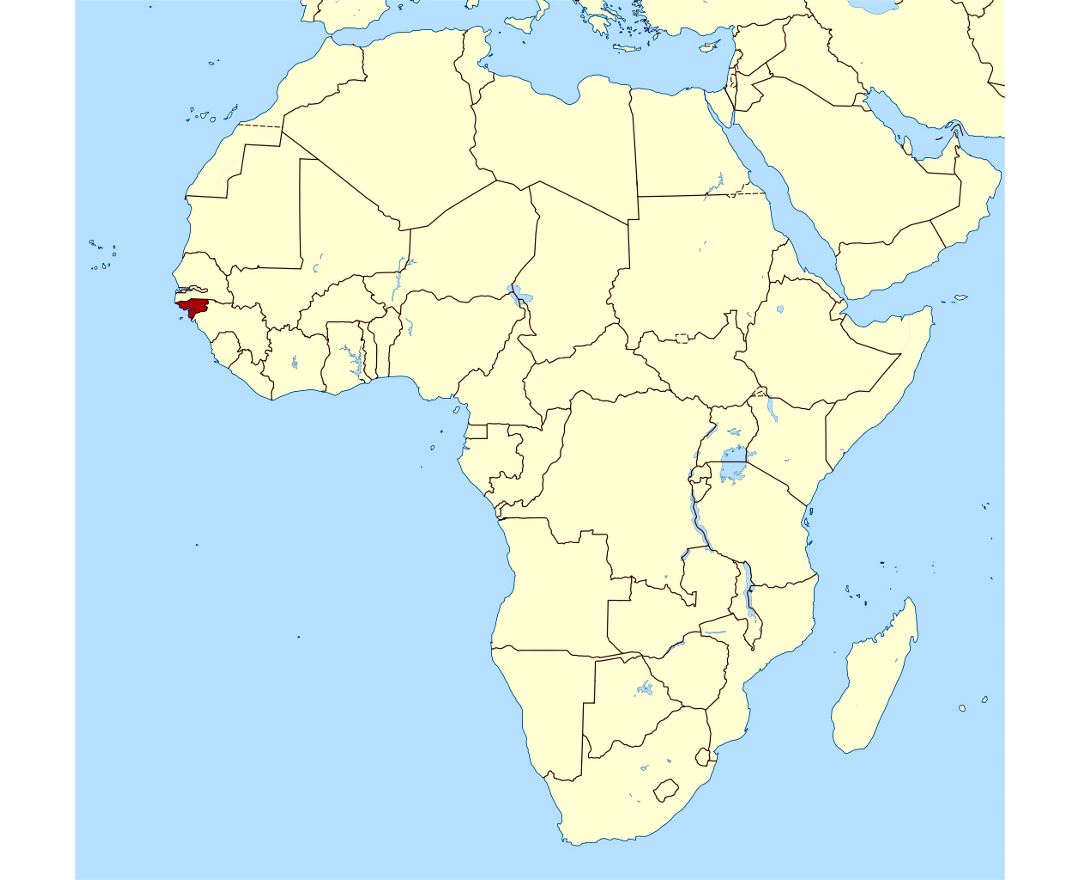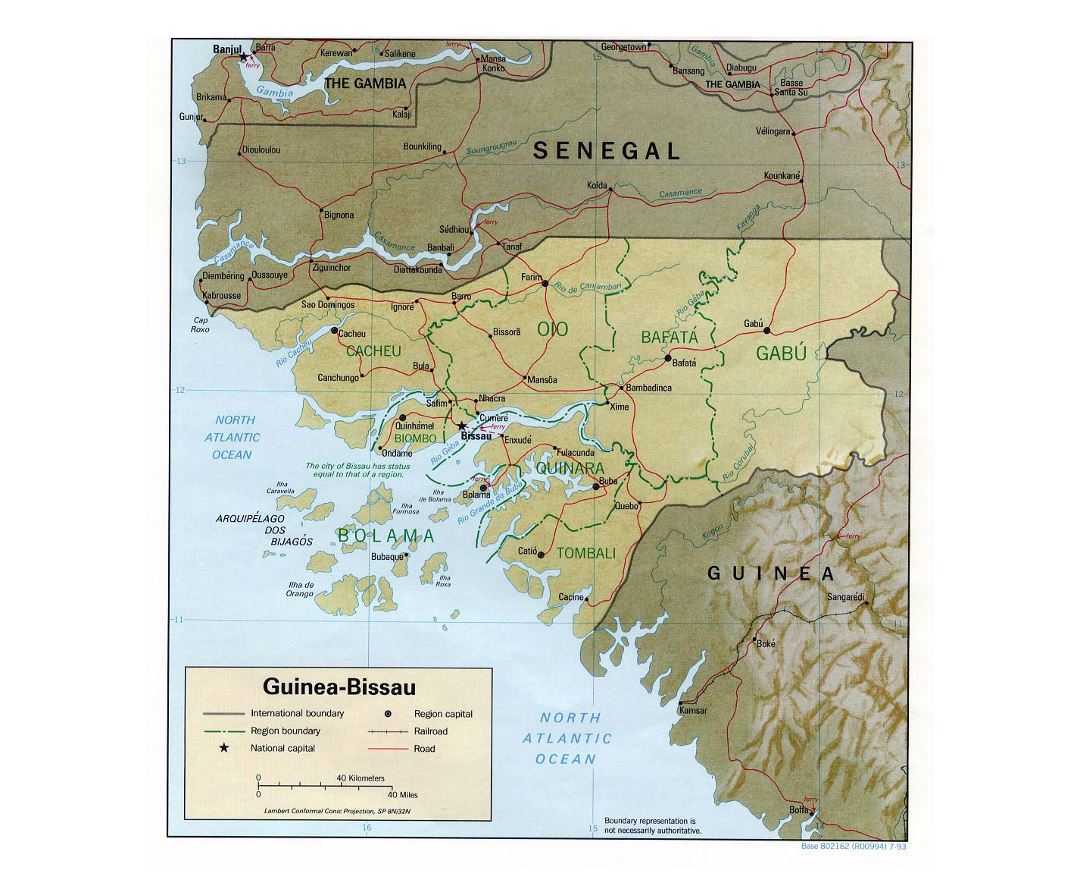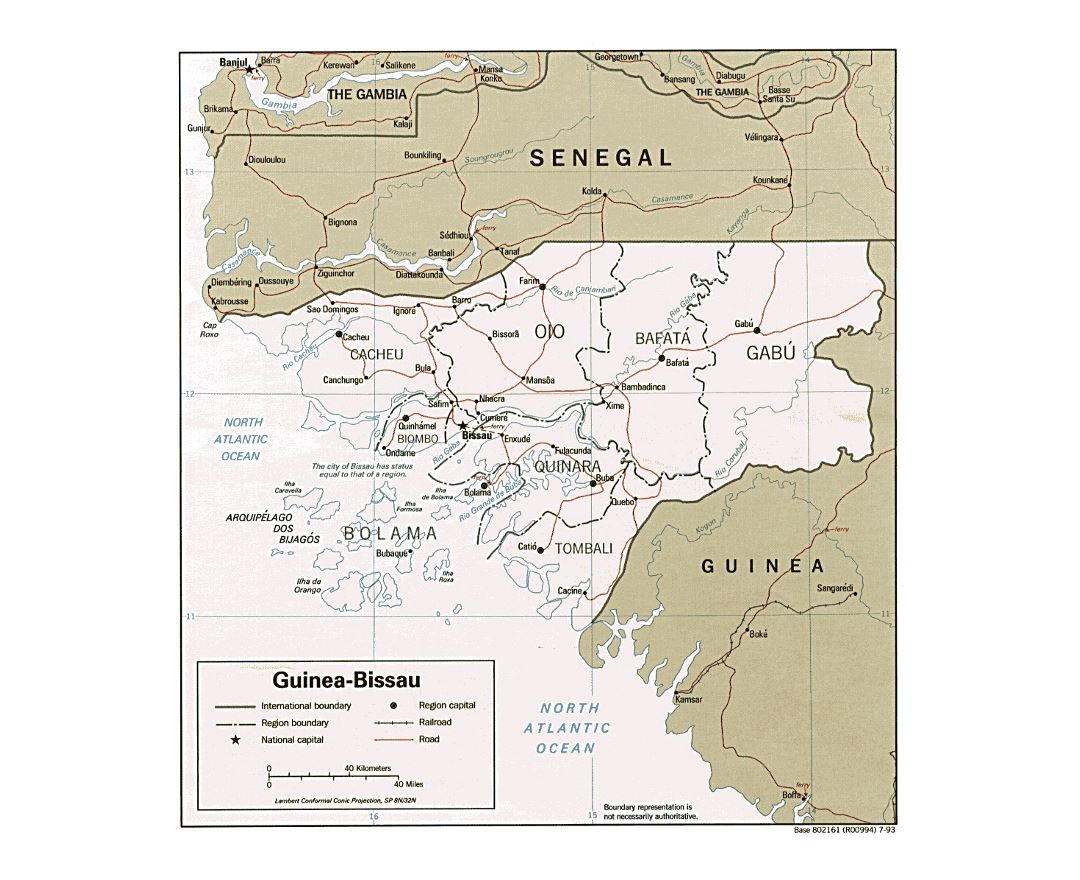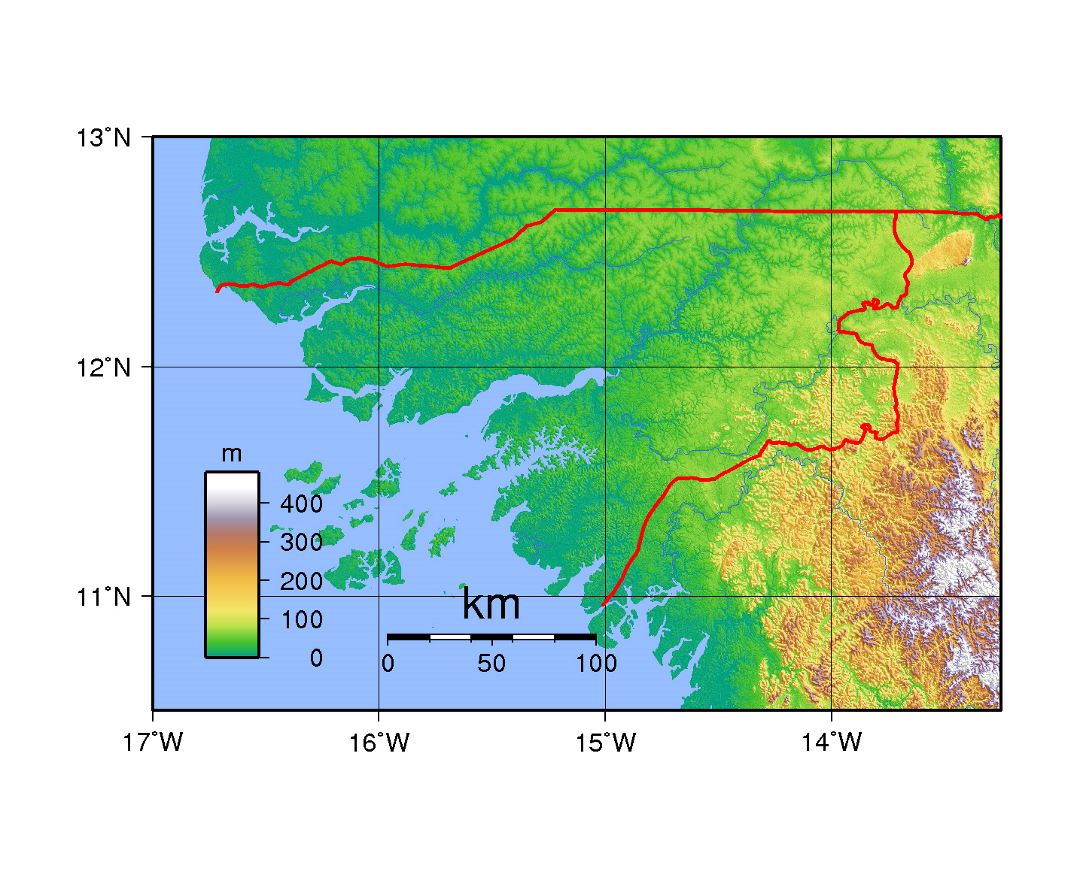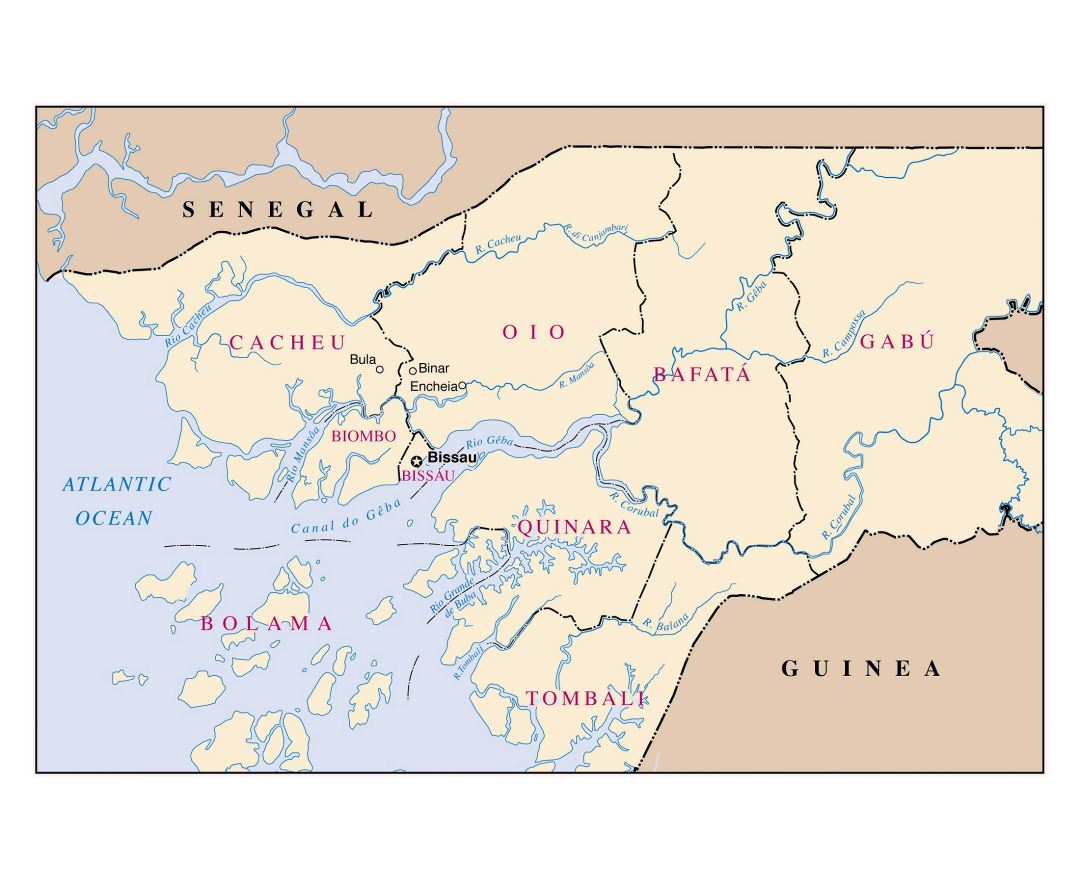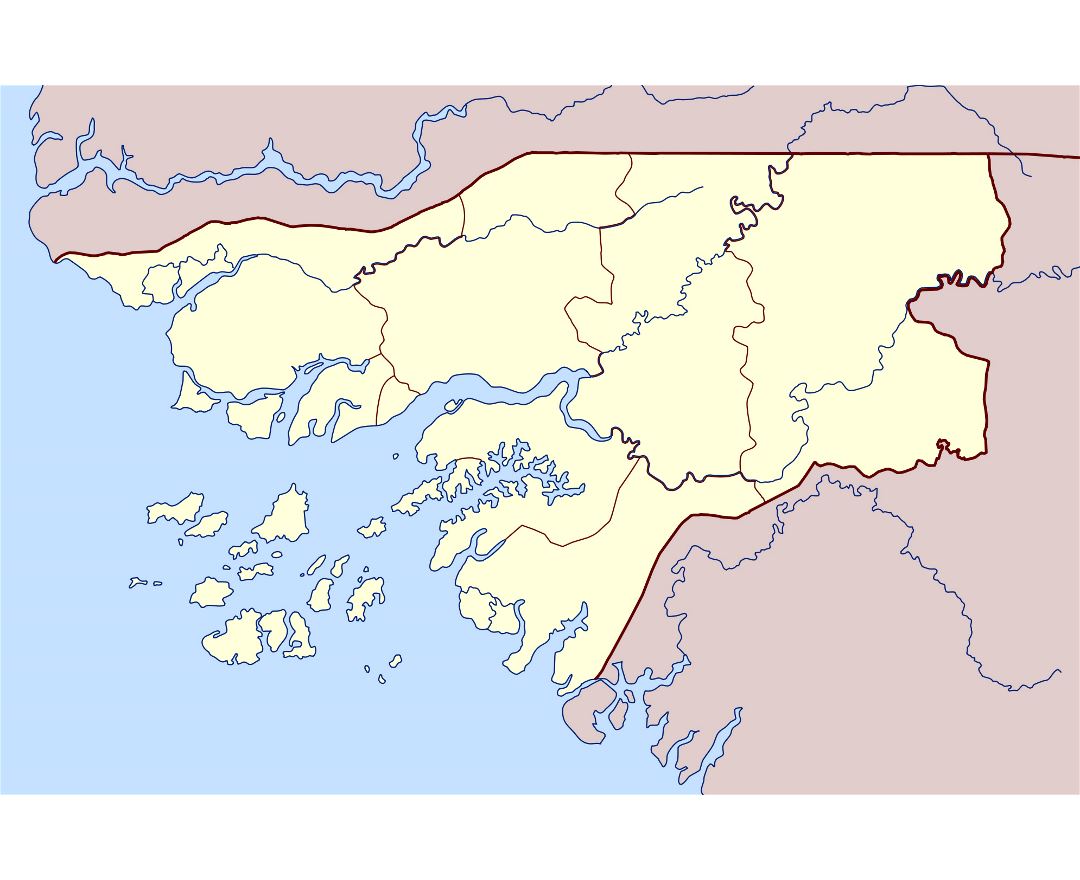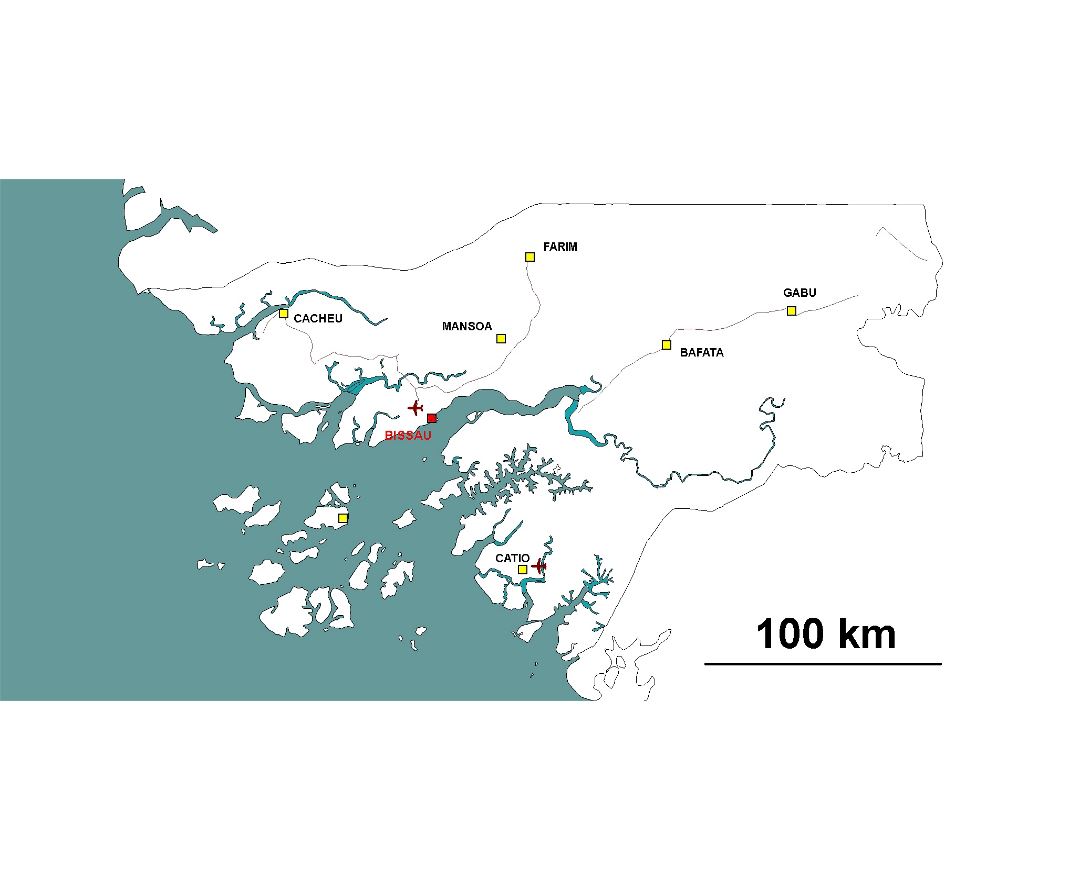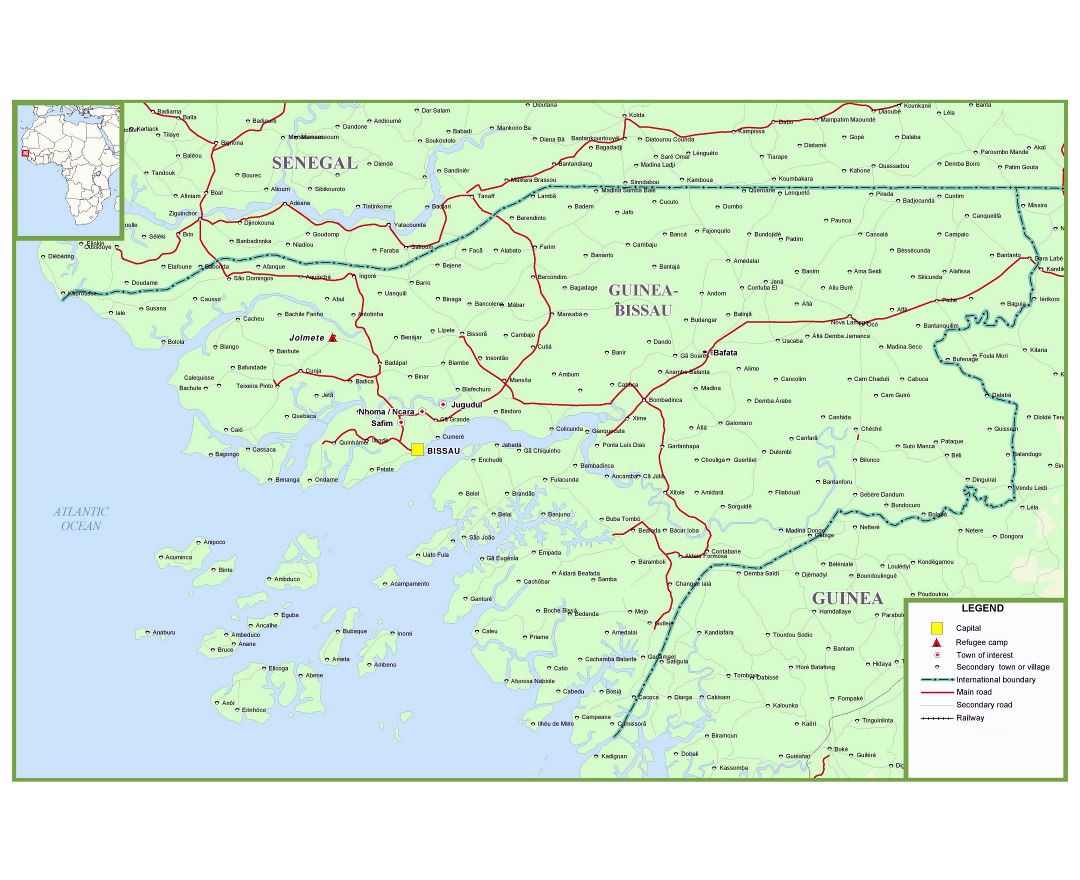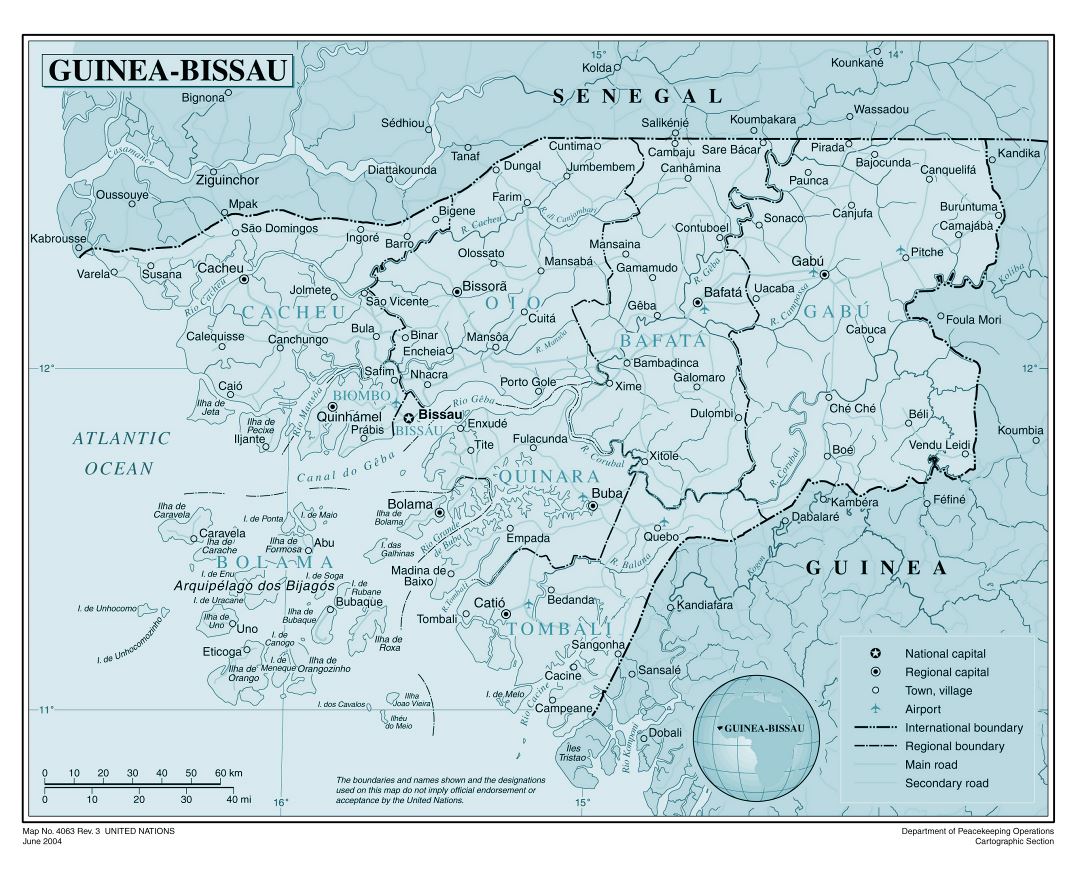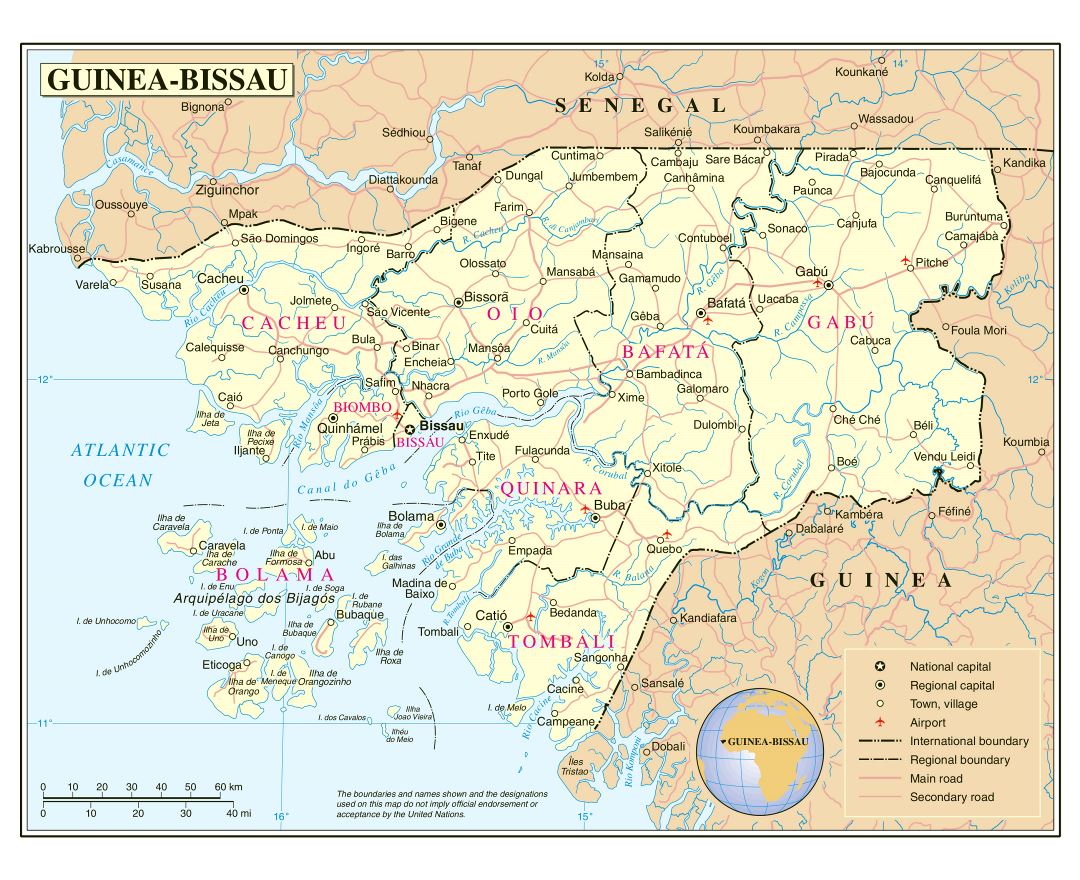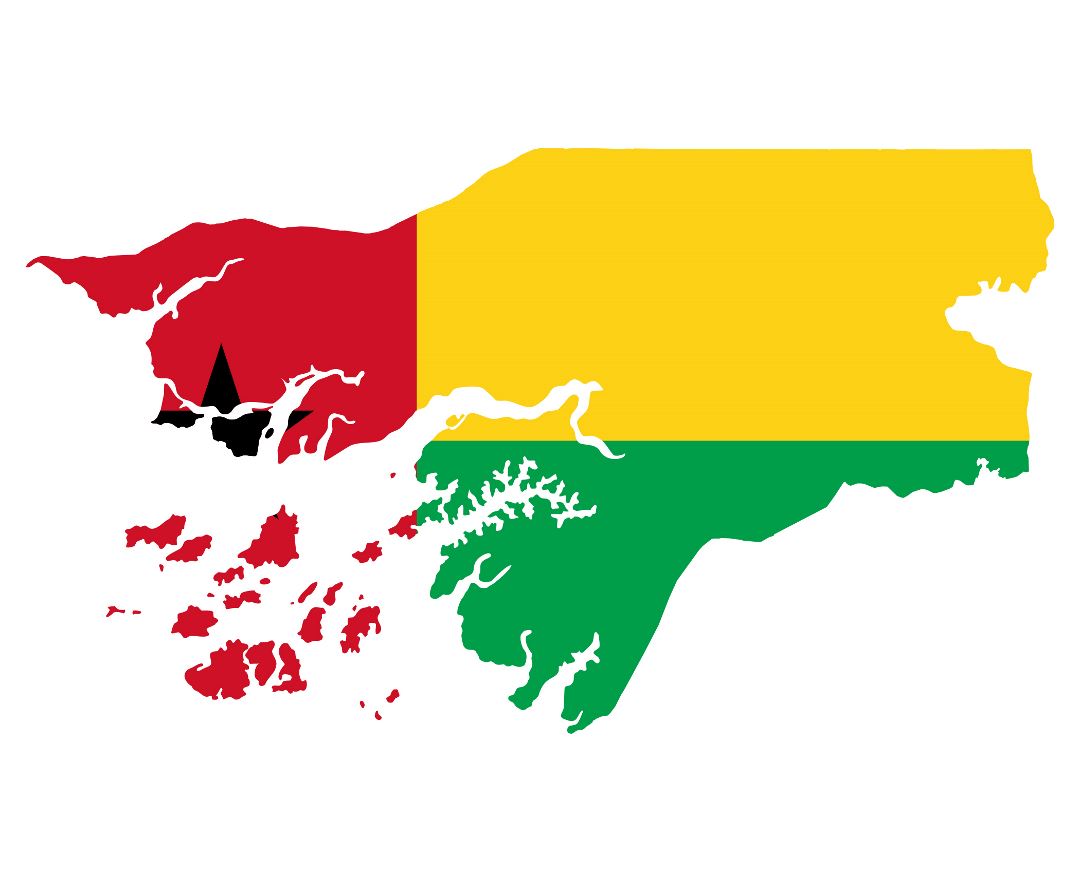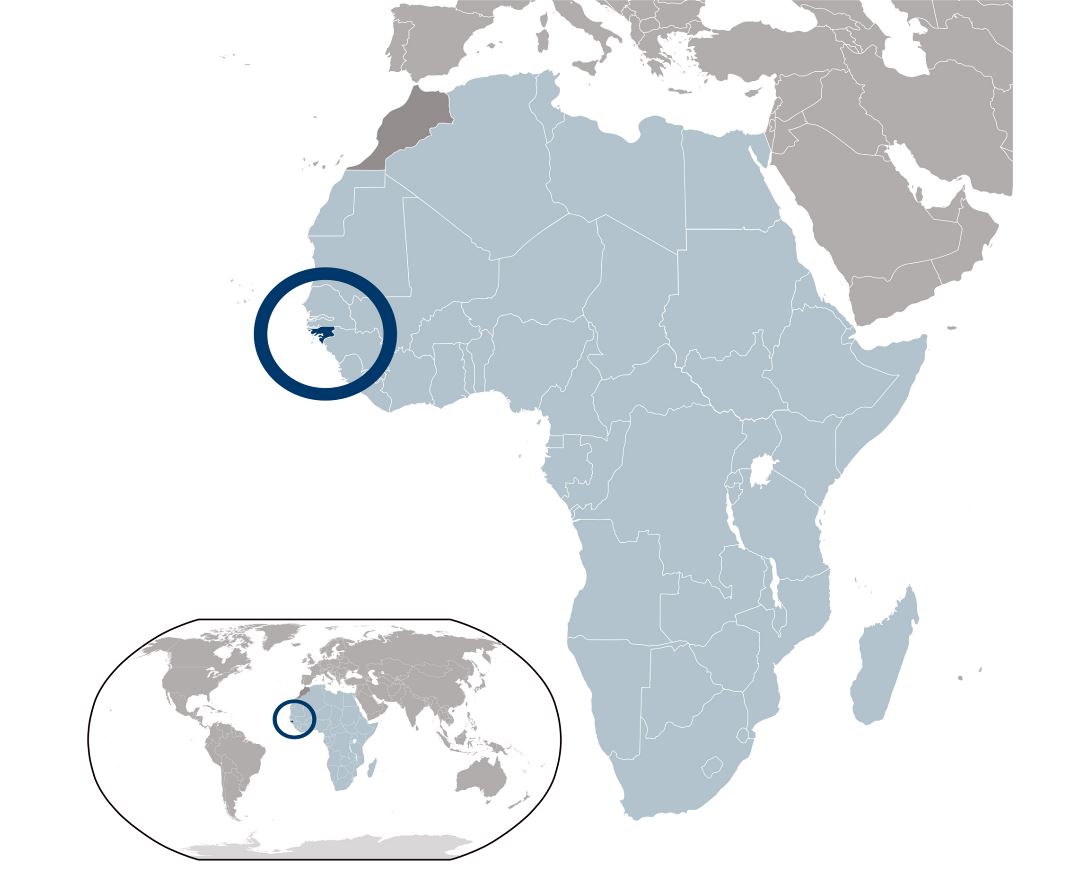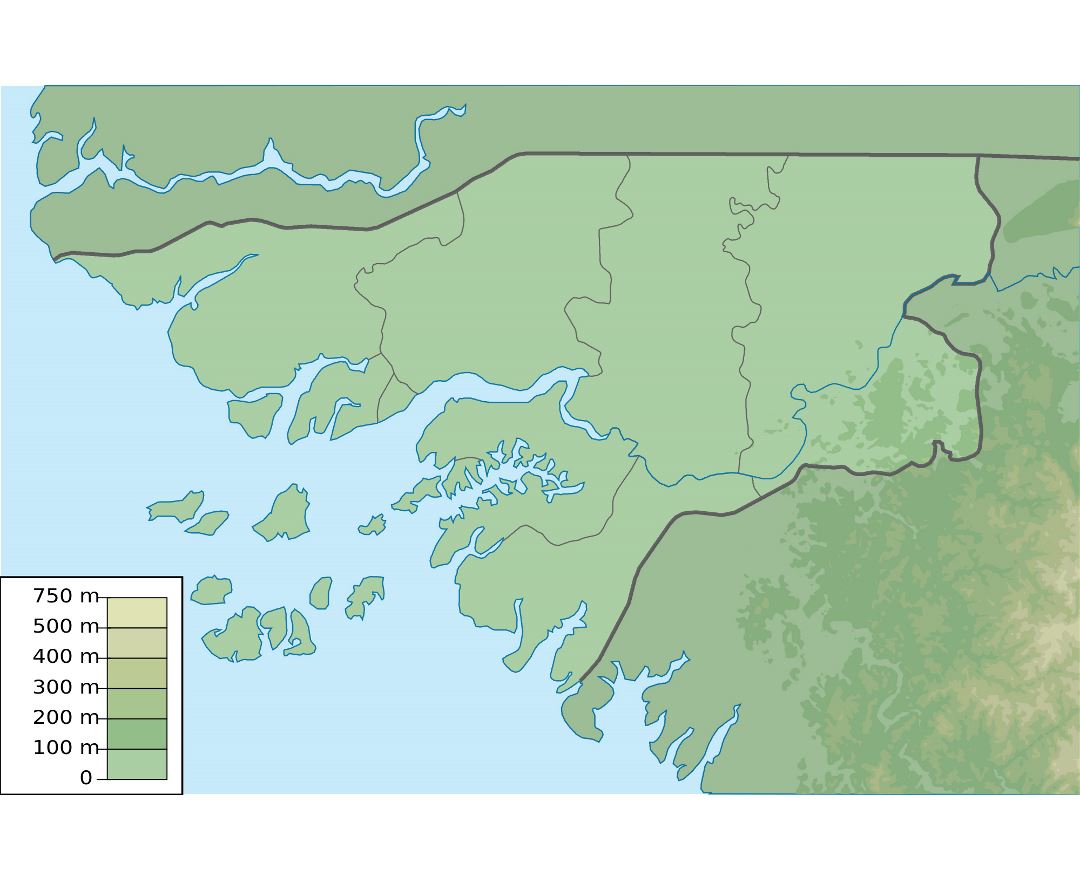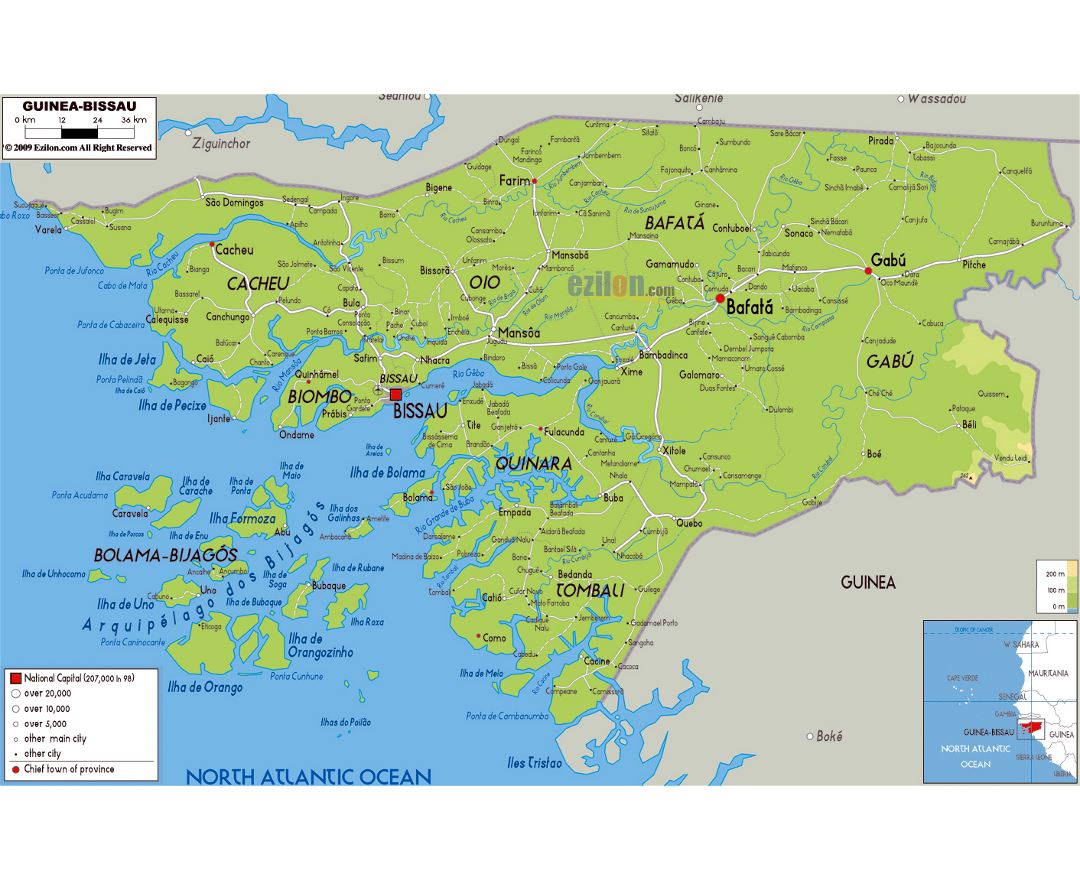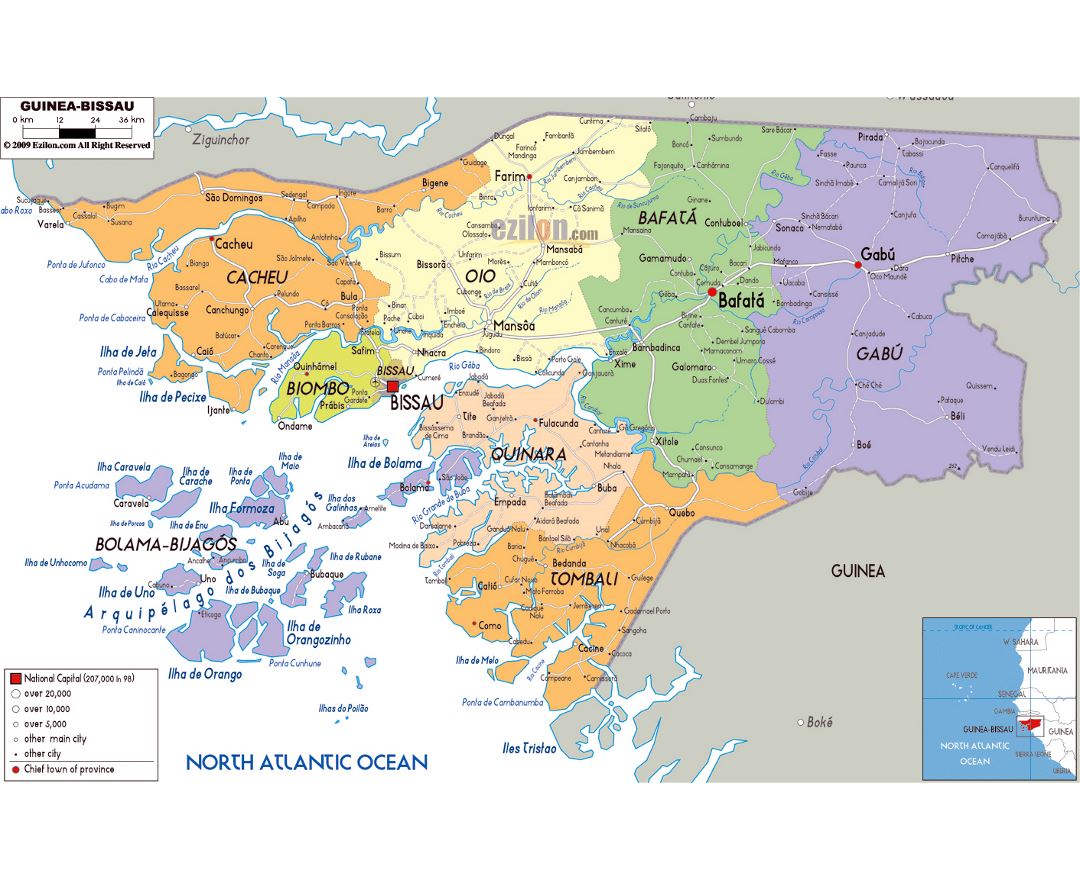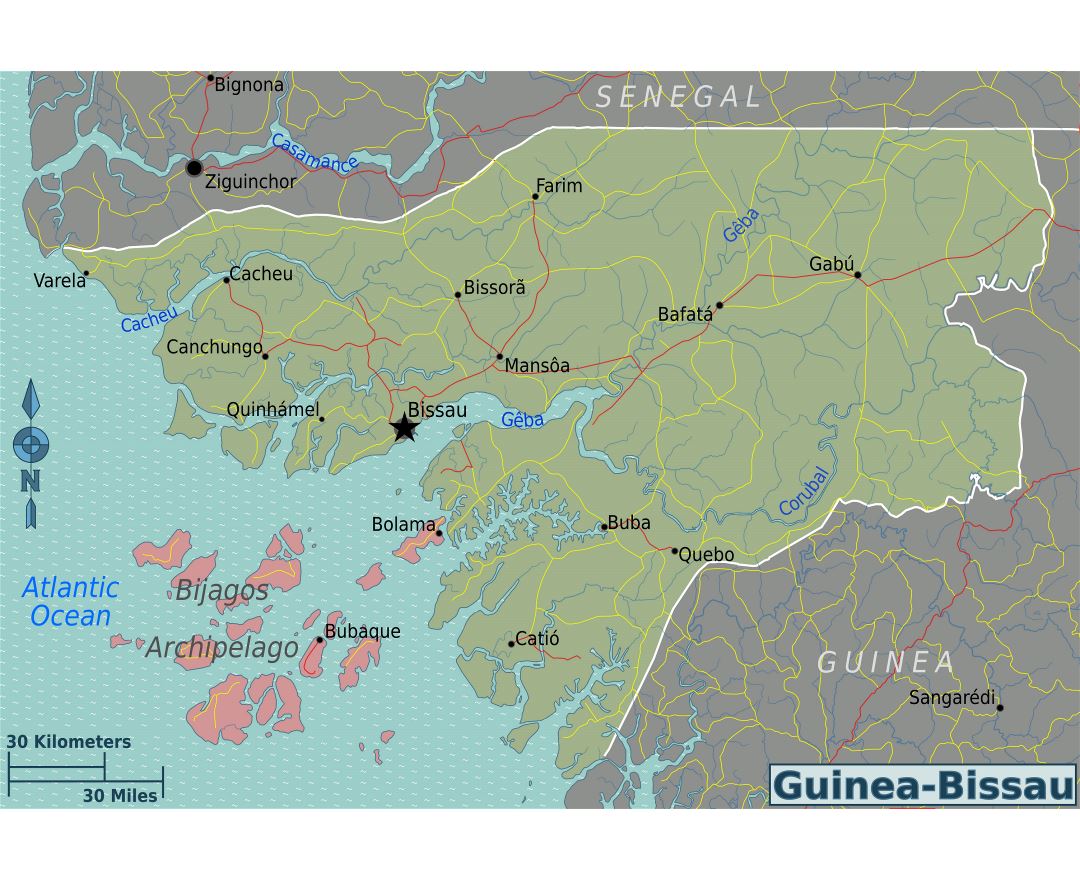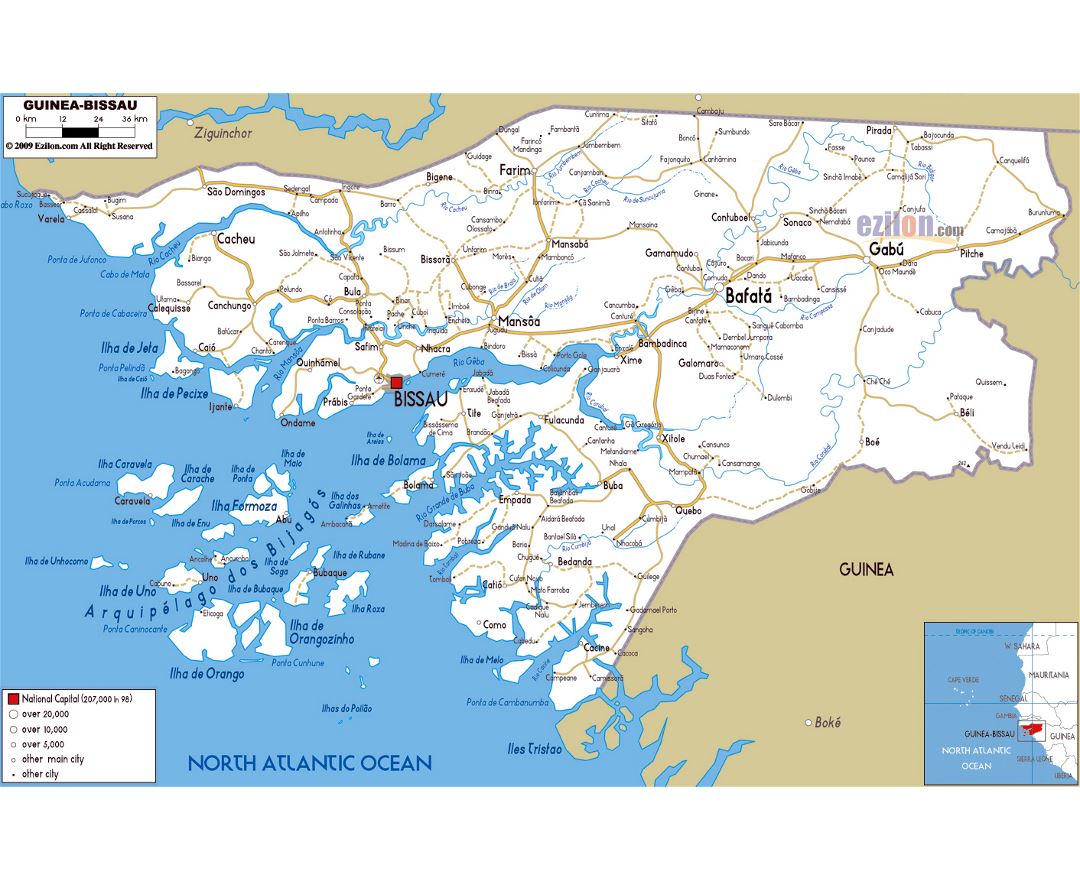Guinea-Bissau
Guinea-Bissau, officially the Republic of Guinea-Bissau, is a country in West Africa. It covers 36,125 square kilometres (13,948 sq mi) with an estimated population of 1,704,000.
Guinea-Bissau was once part of the kingdom of Gabu, as well as part of the Mali Empire. Parts of this kingdom persisted until the 18th century, while a few others were under some rule by the Portuguese Empire since the 16th century. In the 19th century, it was colonised as Portuguese Guinea. Upon independence, declared in 1973 and recognised in 1974, the name of its capital, Bissau, was added to the country's name to prevent confusion with Guinea (formerly French Guinea). Guinea-Bissau has a history of political instability since independence, and no elected president has successfully served a full five-year term.
Only 14% of the population speaks Portuguese, established as the official language in the colonial period. Almost half the population (44%) speaks Crioulo, a Portuguese-based creole language, and the remainder speak a variety of native African languages. The main religions are African traditional religions and Islam, there is a Christian (mostly Roman Catholic) minority. The country's per-capita gross domestic product is one of the lowest in the world.
Guinea-Bissau is a member of the United Nations, African Union, Economic Community of West African States, Organisation of Islamic Cooperation, the Latin Union, Community of Portuguese Language Countries, La Francophonie and the South Atlantic Peace and Cooperation Zone.

